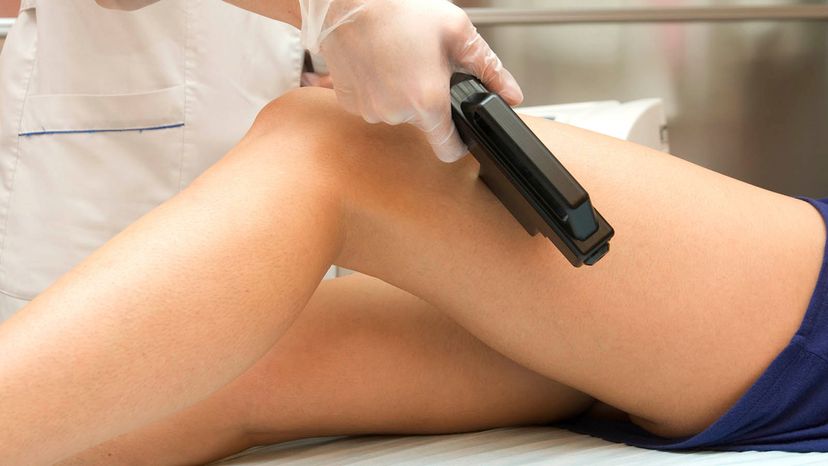
You shaved last night, but already this morning there's a crop of new growth -- prickly, unbidden and winding its way into your morning routine. While you'd like to simply toss on your workout gear or workday suit, you first have an appointment to keep -- with a razor.
Whether you've been tweezing, waxing or shaving those pesky problem hairs, you're probably tired of losing the follicle feud. With laser hair removal more prevalent than ever -- from day spas to dermatologists -- you may be considering the equivalent of concrete booties for your skin's hairy interlopers. Still, a question remains: Is permanent hair removal really permanent?
Advertisement
Laser hair removal uses focused light energy to send a death knell to individual hair follicles under the skin. However, not all hair is at the same point in the growth cycle. This distinction is important, because it means some hair won't be damaged by the laser and will continue to grow. You'll need a series of laser treatments to target individual hairs during their growth cycles. Even then, some hair may eventually grow back.
While "permanent" laser hair removal is a misnomer, after six to eight treatments, you can expect a marked reduction in hair. Any regrowth can be managed with touch-up treatments every six to 12 months.
Each laser hair removal treatment typically costs $500 to $1,000, and feels like the snap of a hot rubber band on your skin. You may also smell a tinge of burnt hair.
The type of hair and skin tone you're sporting can affect hair removal, too. Laser hair removal is most efficient when the laser can focus on a difference in pigment, such as dark hair erupting from light skin. Because the concentrated light is absorbed by pigment, laser hair removal isn't very effective on people with blonde or gray hair.
Before you show up for your hair removal appointment, make sure you've taken a few skin-saving precautions. Stay away from anything that could make your skin darker and attract the laser to pigment in your skin, such as sun exposure or tanning beds. You'll also want to stop using any products that make the skin more sensitive, such as retinol creams or vitamin-C serums. Also, steer clear of laser hair removal if you're taking any medications that make your skin more sensitive to light.
If you do opt for laser hair removal, add some aftercare to your skin maintenance routine. No chlorinated pools or saltwater swims for seven days after your treatment. Your skin will be more sensitive, which means sun exposure should be avoided for a few days.
Advertisement

